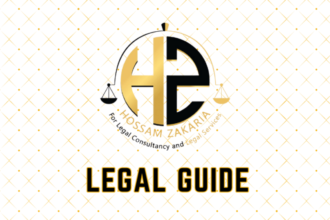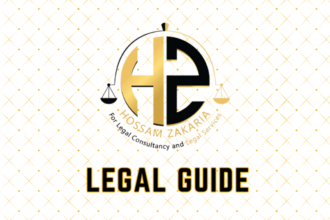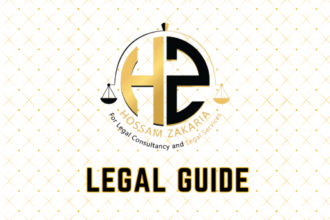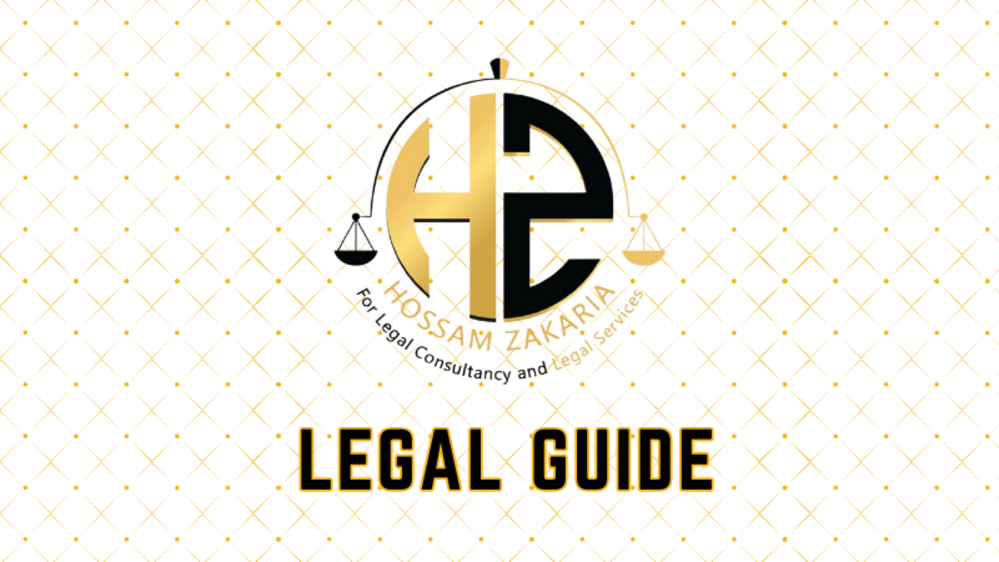Introduction
Arbitration is an increasingly prominent method for resolving commercial disputes in the Gulf region. Qatar, with its rapidly evolving economic landscape and international business aspirations, has particular importance for UAE-based enterprises engaged in cross-border transactions. The recent entry into force of Qatar Law No. (2) of 2017 on the Issuance of the Arbitration Law—largely aligned with the UNCITRAL Model Law—brings Qatar into closer harmony with international arbitration standards. Understanding these legal frameworks is critical for UAE businesses, in-house counsel, and executives looking to manage contractual risks effectively and remain compliant with best practices in dispute resolution. This expert analysis deciphers the intricacies of Qatar Arbitration Law, compares its provisions with previous law and UAE standards, illustrates key risks, and provides actionable insights for UAE organizations as they expand or operate in Qatar.
Our analysis is informed by recent legal developments, official guidance from the UAE Ministry of Justice, and evolving trends in regional dispute resolution. This article aims to equip UAE businesses and legal professionals with the knowledge needed to navigate Qatar’s arbitration regime—ensuring both strategic advantage and legal compliance as we move into 2025 and beyond.
Table of Contents
- Overview of Arbitration Law in Qatar
- Key Provisions of Qatar Arbitration Law
- Comparing Arbitration Laws in Qatar and the UAE
- Practical Implications for UAE Businesses
- Risks of Non-Compliance and Compliance Strategies
- Case Studies and Hypotheticals
- Best Practices and Recommendations
- Conclusion and Future Outlook
Overview of Arbitration Law in Qatar
Historical Context and Evolution
Arbitration in Qatar was historically governed by a fragmentary regime under the Civil and Commercial Procedures Law (Law No. 13 of 1990, Articles 190-210). This framework, while available, lacked many features required for modern, complex cross-border disputes—often raising doubts among foreign investors and counterparties about enforceability, neutrality, and efficiency.
The landscape shifted dramatically with the adoption of Qatar’s new Arbitration Law (Law No. 2 of 2017), which adopted much of the UNCITRAL Model Law on International Commercial Arbitration. This move not only boosted investor confidence but also positioned Qatar as a serious international arbitral seat—critical for UAE businesses frequently entering contracts governed by law and seated in Qatar.
Main Features of the New Law
- Model Law Foundation: Substantial adoption of the 1985 UNCITRAL Model Law as amended in 2006.
- Arbitration Agreement Formalities: Arbitration agreements must be in writing but may be concluded through electronic means.
- Powers of the Arbitrators: Tribunals are empowered to determine their own jurisdiction—embracing the Kompetenz-Kompetenz and severability principles.
- Court Support: Local Qatari courts can assist both in the appointment process and with interim relief, and may decline jurisdiction when a valid arbitration agreement is present.
- Recognition and Enforcement: Clearer and more flexible procedures for the recognition and enforcement of local and foreign arbitral awards, in harmony with the New York Convention (to which Qatar is a party since 2002).
Key Provisions of Qatar Arbitration Law
1. Scope and Applicability
The new law applies to all arbitrations seated in Qatar, whether domestic or international. Parties are free to choose procedural rules (such as those of the Qatar International Center for Conciliation and Arbitration or ICC rules), subject to the law’s mandatory provisions.
2. Arbitration Agreement
Article 7 of Law No. 2 of 2017 stipulates that the arbitration agreement must be in writing. Electronic correspondence and exchanges are fully recognized. However, ambiguity in drafting or the inclusion of non-arbitrable matters (such as criminal, personal status, or public policy issues) can undermine enforceability.
3. Constitution of the Arbitral Tribunal
Parties are free to agree on the number of arbitrators (subject to their being odd). Failing agreement, the default is a sole arbitrator. Qatar courts can intervene only in certain cases—such as deadlock in appointments or when the appointed arbitrator is challenged.
4. Jurisdiction and Separability
The law supports the principle that an arbitral tribunal may rule on its own jurisdiction—including any objections to the existence or validity of the arbitration agreement—reinforcing party autonomy and procedural efficiency.
5. Conduct of Proceedings
Procedural flexibility is a hallmark: parties may select rules and languages. If not agreed, the tribunal determines process matters, with a duty to observe equality and due process. Remote hearings and electronic communications are recognized, a practical advantage particularly post-pandemic.
6. Interim Measures
Either the tribunal or courts may grant interim relief to protect assets or evidence, subject to certain limitations. Notably, the law gives effect to agreements limiting ex-parte relief, but parties must draft such clauses carefully.
7. Challenge and Termination
Grounds for challenging arbitrators are specified (e.g., conflict of interest, incapacity). The law also provides for termination of arbitrator mandates and replacement procedures to avoid obstruction or manipulation by recalcitrant parties.
8. Awards: Issuance, Correction, and Challenges
Arbitral awards must be issued within specified timelines unless parties agree otherwise. Correction of clerical errors and requests for interpretation are permitted. Only limited grounds for challenging or annulling an award exist—primarily relating to procedural irregularity, lack of jurisdiction, or violation of Qatari public policy.
9. Enforcement
The new regime, aligning with the New York Convention, mandates expeditious enforcement of valid awards unless exceptional grounds for refusal exist. Enforcement procedures through the Qatari courts are now better defined and more straightforward for foreign entities.
Comparing Arbitration Laws in Qatar and the UAE
For UAE businesses active in Qatar, it is vital to understand both jurisdictions’ legal landscapes, especially in light of the UAE’s own significant reforms (notably, UAE Federal Law No. 6 of 2018 on Arbitration and subsequent amendments).
| Feature | Qatar (Law No. 2 of 2017) | UAE (Federal Law No. 6 of 2018) |
|---|---|---|
| Core Legal Framework | UNCITRAL Model Law-based; applied to domestic and international arbitration seated in Qatar | UNCITRAL Model Law-based; applies to all arbitrations seated in UAE, unless parties agree otherwise |
| Arbitration Agreement | In writing, incl. electronic means | In writing, electronic/evidence of agreement accepted |
| Number of Arbitrators | Odd number; default is one | Odd number, default is three (unless otherwise agreed) |
| Tribunal Jurisdiction | Kompetenz-Kompetenz recognized explicitly | Explicit Kompetenz-Kompetenz |
| Interim Measures | Court and tribunal authority; procedures specified | Court and tribunal authority; ex-parte relief available in limited cases |
| Grounds for Annulment | Public policy, incapacity, invalid arbitration agreement, improper notice, excess of jurisdiction, procedural irregularity | Similar grounds; emphasis on public policy and procedural safeguards |
| Enforcement of Awards | Aligned with New York Convention; expedited procedures | Aligned with New York Convention; streamlined process |
| Judicial Support | Qatari courts limited to specified supportive and supervisory roles | UAE courts have similar supervisory roles; optional opt-out in certain free zones |
| Use of International Arbitration Rules | Permissible (e.g., ICC, QICCA) | Permissible (e.g., DIAC, ICC) |
Suggested Visual: A comparative process flow of arbitration proceedings—Qatar vs. UAE. [Alt text: Process flowchart comparing arbitration procedures in Qatar and the UAE.]
Practical Implications for UAE Businesses
Contract Drafting and Arbitration Clauses
The wording of arbitration clauses is a recurring source of contention in litigation. UAE businesses must ensure that:
- Any arbitration clause naming Qatar as the seat explicitly refers to Law No. 2 of 2017.
- The chosen institutional rules (if any) are spelled out, including language, number of arbitrators, and method of appointment.
- Dispute categories falling outside arbitrability (e.g., those impinging on Qatari public order or criminal law) are excluded.
Case Example: An Abu Dhabi-based contractor enters into a joint venture agreement with a Qatari entity. The arbitration clause ambiguously refers to “arbitration in Qatar” without specifying institution or language. When a dispute arises, parties expend valuable time and resources litigating these process points—causing costly delays. Had the clause incorporated precise language (‘All disputes to be settled under QICCA Rules, seated in Doha, language Arabic…’) the risk of procedural challenge would drop substantially.
Enforcement Strategy
For UAE businesses, one of the chief concerns is whether a Qatari arbitral award will be enforced both in Qatar and in the UAE. The following steps are critical:
- Verify the procedural integrity of the arbitral process (timely notification, right to present a case, compliance with Qatari procedural rules).
- Ensure the award complies with formal requirements under the new law (including signing, language, and essential statements in the award text).
- Assess whether any local public policy exceptions might impede recognition—especially for awards requiring action in the UAE.
Interim Measures and Asset Protection
Given the ability to seek interim relief from Qatari courts or arbitral tribunals, UAE businesses should:
- Include provisions in contracts enabling prompt application for asset-freezing orders or evidence preservation measures.
- Appoint legal counsel with established presence in Qatar to expedite these applications when disputes are anticipated.
Considerations for Public Sector or Government-linked Deals
Arbitrating disputes involving Qatari government entities demands special care. Notably, prior written approval from competent authorities may be required to submit disputes to arbitration—and public policy considerations may bar certain claims outright. Failure to comply could result in the arbitral award being unenforceable in Qatar.
Risks of Non-Compliance and Compliance Strategies
Potential Risks
- Inadmissibility of Claims: Poorly drafted arbitration clauses or failure to adhere to mandatory provisions can result in courts refusing to stay proceedings, or in awards being set aside.
- Delay and Expense: Opaque procedures, challenges to the tribunal’s jurisdiction, or confusion over institutional vs. ad-hoc arbitration can escalate costs and delay resolution.
- Non-Enforcement of Awards: Awards issued in breach of public policy or with procedural defects (e.g., lack of due process or failure to notify parties) risk being refused enforcement both in Qatar and in the UAE under the New York Convention.
- Reputational Risk: Protracted, public disputes may undermine business relationships and commercial standing in the region.
- Criminal or Regulatory Breach: Conducting arbitration in matters excluded by Qatari law—or bypassing government approvals—can attract regulatory sanctions.
Compliance Strategies
| Compliance Step | Description | Responsible Party |
|---|---|---|
| Drafting Robust Arbitration Clauses | Engage expert legal review to ensure clarity, compliance, and enforceability of all dispute resolution clauses. | Legal Counsel, Contract Team |
| Choice of Institution and Seat | Select a reputable institution (QICCA, ICC, etc.) and seat that aligns with business needs and local law. | Legal, Executive Management |
| Compliance Audit | Periodic review of template contracts and legacy agreements involving Qatari parties. | Legal/Compliance Department |
| Awareness of Public Policy Themes | Identify non-arbitrable subjects and secure government approvals where required. | External Legal Advisor |
| Proactive Enforcement Planning | Understand and prepare for award enforcement processes in both Qatar and the UAE. | Legal/Enforcement Counsel |
Suggested Visual: Compliance checklist for UAE businesses engaging in Qatar-related contracts. [Alt text: A compliance checklist for cross-border arbitration agreements.]
Case Studies and Hypotheticals
Case Study 1: Construction Dispute
Scenario: A UAE real estate developer contracts a Qatari sub-contractor for a major infrastructure project in Doha. The contract calls for ICC Rules arbitration, seat Doha, language English. Upon allegations of delay, the sub-contractor initiates arbitration; the developer challenges the tribunal’s jurisdiction, arguing ambiguity in the scope of disputes covered by arbitration.
Consultancy Analysis: Under both Qatari Law No. 2 of 2017 and the UAE Arbitration Law, courts favor the enforceability of broad and clear arbitration clauses. The ambiguity could have been resolved at drafting stage, but timely assertion of jurisdictional objections and expert-led formulation of Terms of Reference ensured efficient administration—resulting in an enforceable final award.
Case Study 2: Non-Arbitrable Dispute
Scenario: A Qatari company initiates arbitration under a contract with a Dubai-based supplier, seeking damages for criminal fraud. The supplier refuses to participate, arguing the dispute is not arbitrable under Qatari law.
Consultancy Analysis: Criminal matters and questions touching on public morality, insolvency, and some labor issues are not arbitrable in Qatar. Here, the tribunal would likely decline jurisdiction, and any purported award would risk being annulled by Qatari courts, illustrating the critical importance of drafting and pre-dispute legal review.
Case Study 3: Enforcement Challenges
Scenario: An arbitral award rendered in Qatar is sought to be enforced in the UAE against a Dubai-based respondent.
Consultancy Analysis: Provided that the underlying arbitration complied with Qatari procedural rules, and the award does not conflict with UAE public policy, the UAE courts—consistent with their obligations under the New York Convention—should enforce the award. However, failure to adhere to due process (e.g., lack of proper notice to the respondent) could result in the award being refused enforcement.
Best Practices and Recommendations
- Early Engagement of Legal Experts: Engage qualified counsel, both in the UAE and Qatar, at the contract negotiation and drafting phase to mitigate risks.
- Precision in Arbitration Clauses: Avoid boilerplate language; tailor dispute resolution provisions to the context, covering institution, seat, language, and procedural rules.
- Conduct Compliance Training: Ensure commercial and legal teams understand the fundamentals of Qatar’s arbitration regime and public policy prohibitions.
- Maintain Documentation: Retain thorough records of communications and procedural steps to defend against enforcement challenges.
- Regular Legal Audits: Periodically review and update master service agreements, supply contracts, and JV arrangements for new legal risks and compliance requirements.
- Plan for Enforcement: Map out enforcement processes in advance—including asset tracing and jurisdictional analysis for awards that may need cross-border enforcement.
Conclusion and Future Outlook
The adoption of Qatar Law No. 2 of 2017 marks a decisive evolution in regional dispute resolution, aligning Qatar more closely with global best practices and strengthening its appeal as an arbitral seat. For UAE businesses, this presents new opportunities and operational confidence—but also underlines the need for careful legal preparation, contract diligence, and responsive compliance strategies. As both UAE and Qatari frameworks continue to modernise, companies that invest in robust dispute resolution protocols, proactive compliance, and cross-border legal partnerships will be ideally positioned to reduce risk and seize opportunity across the Gulf in 2025 and beyond.
Regularly monitor updates from sources such as the UAE Ministry of Justice and Qatar Government Communications Office to stay ahead of legal and regulatory changes.
Suggested Visual: A flow diagram summarising the end-to-end process for arbitration in Qatar under the 2017 law. [Alt text: End-to-end arbitration process diagram for Qatar, 2017 law.]



